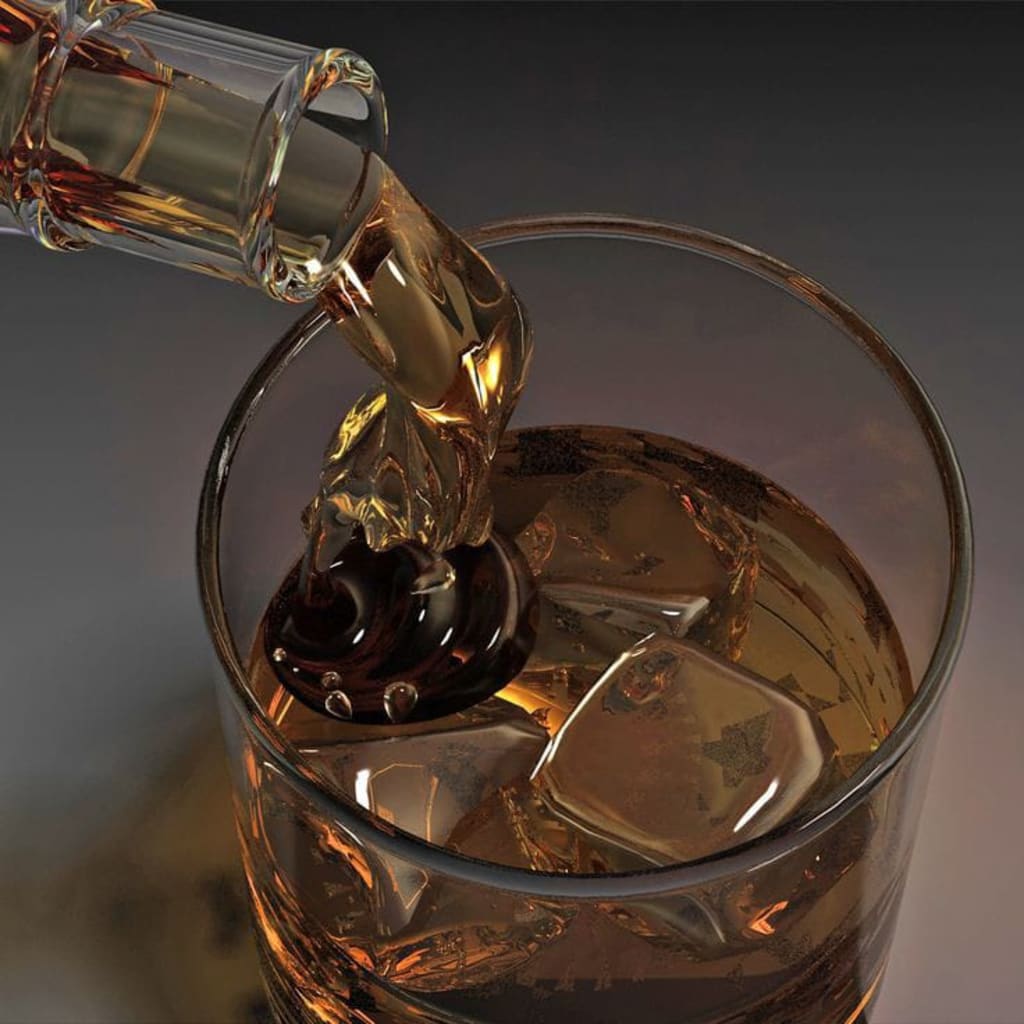ALCOHOL
Alcohol is a psychoactive substance that is widely consumed for recreational, cultural, and religious purposes. It is a central nervous system depressant that can cause feelings of euphoria, relaxation, and reduced inhibition.

Alcohol is a psychoactive substance that is widely consumed for recreational, cultural, and religious purposes. It is a central nervous system depressant that can cause feelings of euphoria, relaxation, and reduced inhibition. However, excessive consumption of alcohol can lead to numerous negative health consequences, including liver disease, cardiovascular problems, and increased risk of certain types of cancer. Additionally, alcohol abuse can cause a range of social and personal problems, such as relationship difficulties, financial strain, and increased risk of accidents and injuries.
It's important to note that alcohol consumption should always be done in moderation and in accordance with local laws and regulations. The legal drinking age in most countries is 18 years old, but it may vary depending on the jurisdiction. If you have any concerns about your own alcohol consumption or that of someone you know, it's always best to speak with a doctor or other healthcare professional for guidance.
Different types of alcohol
There are many different types of alcohol, but the most commonly consumed are:
Ethanol: Ethanol is the type of alcohol found in alcoholic beverages, such as beer, wine, and spirits.
Beer: Beer is a type of alcoholic beverage made from fermented grains, such as barley, wheat, and rye. It is typically brewed with hops, yeast, and water.
Wine: Wine is an alcoholic beverage made from fermented grapes or other fruits. There are many different types of wine, including red, white, and rosé, and they can vary in taste and alcohol content.
Spirits: Spirits are alcoholic beverages made from distilled grain, fruit, or vegetables. Examples include whiskey, rum, gin, and vodka.
Fortified wines: Fortified wines are wines to which distilled spirits, such as brandy, have been added. Examples include sherry and port.
Liqueurs: Liqueurs are sweet alcoholic beverages made by mixing spirits with sugar and flavorings. Examples include Bailey's Irish Cream and Kahlua.
Cider: Cider is an alcoholic beverage made from fermented apple juice.
It's important to remember that different types of alcohol can vary in their alcohol content, so it's important to know how much you are consuming and to drink in moderation.
Disadvantages of alcohol
Excessive alcohol consumption can have many negative consequences, both for individuals and for society as a whole. Some of the disadvantages of alcohol include:
Health risks: Alcohol is a toxic substance that can damage the liver, heart, brain, and other vital organs. Long-term heavy drinking can lead to a range of health problems, including liver disease, cardiovascular disease, various cancers, and neurological disorders.
Addiction: Alcohol can be addictive, and excessive drinking can lead to alcoholism, which is a chronic and progressive disease that can have a devastating impact on a person's life.
Accidents and injuries: Alcohol impairs judgment and coordination, which increases the risk of accidents and injuries, such as car crashes, falls, and drowning.
Social problems: Alcohol abuse can cause social problems, such as relationship difficulties, financial strain, and problems at work or school. It can also lead to legal problems, such as arrests for drunk driving or disorderly conduct.
Mental health problems: Alcohol can contribute to or worsen a range of mental health problems, such as depression, anxiety, and paranoia.
Economic costs: Alcohol abuse can have significant economic costs, including increased healthcare expenses and decreased productivity.
It's important to remember that moderate alcohol consumption can have some health benefits, but excessive drinking can have serious and long-lasting negative consequences. If you have concerns about your own drinking or that of someone you know, it's important to seek help from a healthcare professional.
Advantages of alcohol
Moderate alcohol consumption can have some potential health benefits, but it's important to note that the risks of alcohol consumption generally outweigh the benefits, and the Centers for Disease Control and Prevention (CDC) does not recommend starting to drink alcohol or drinking more for health reasons.
Some of the potential health benefits of moderate alcohol consumption include:
Heart health: Moderate alcohol consumption has been linked to a reduced risk of heart disease and stroke, possibly because it can increase levels of good cholesterol and reduce blood clotting.
Improved cognitive function: Moderate alcohol consumption has been linked to a reduced risk of cognitive decline and dementia in older adults.
Reduced risk of certain types of cancer: Moderate alcohol consumption has been linked to a reduced risk of some types of cancer, such as colon and breast cancer.
It's important to remember that these potential benefits are only associated with moderate alcohol consumption and may not apply to everyone. Additionally, any potential benefits should be weighed against the many negative consequences of excessive alcohol consumption, such as liver damage, increased risk of certain types of cancer, and increased risk of accidents and injuries.
If you're considering drinking alcohol, it's important to do so in moderation and in accordance with local laws and regulations. The legal drinking age in most countries is 18 years old, but it may vary depending on the jurisdiction.
About the Creator
Enjoyed the story? Support the Creator.
Subscribe for free to receive all their stories in your feed. You could also pledge your support or give them a one-off tip, letting them know you appreciate their work.





Comments
There are no comments for this story
Be the first to respond and start the conversation.